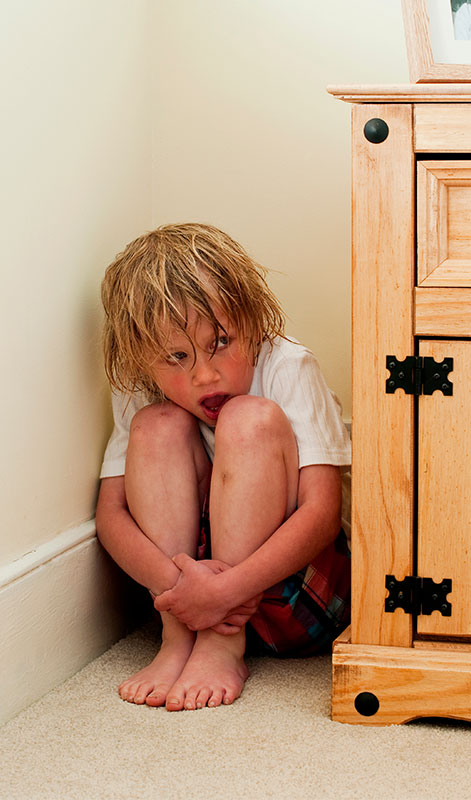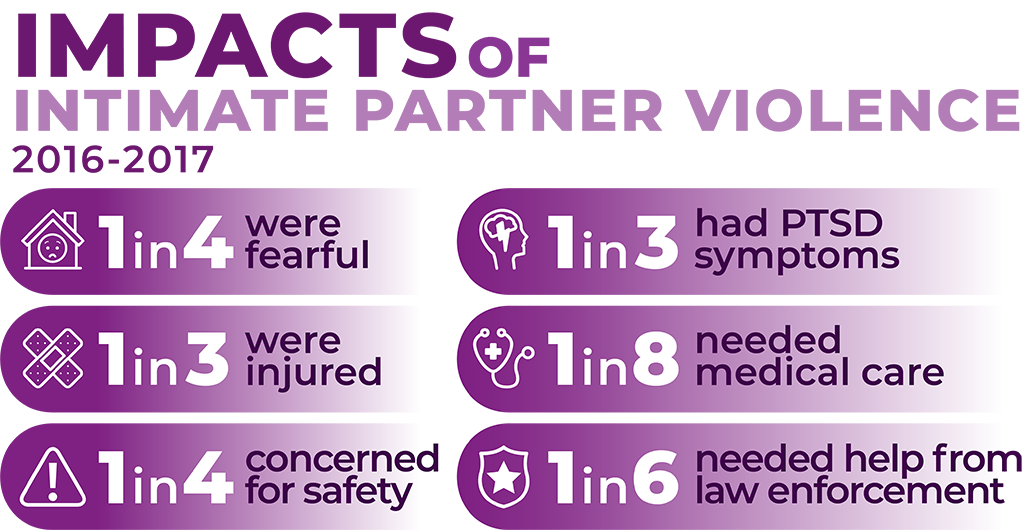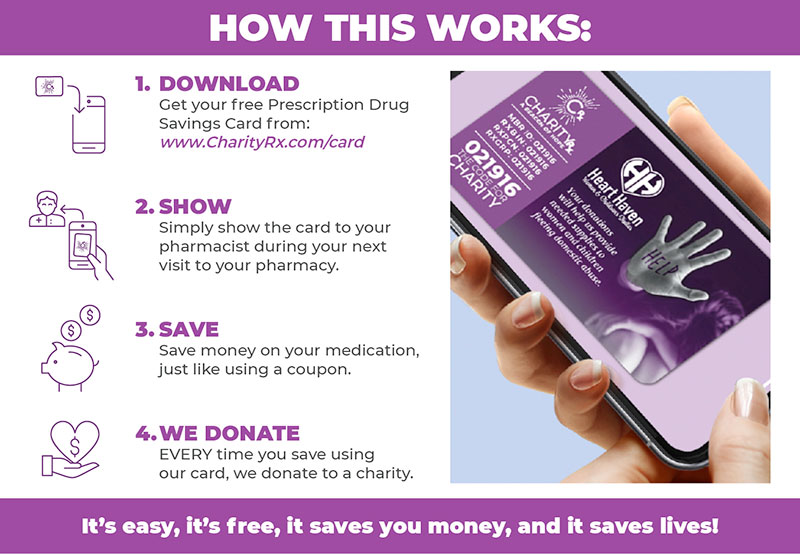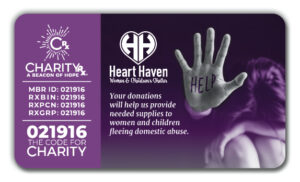Domestic and intimate partner violence (IPV) is a pervasive issue in America, yet the urgency of this issue is not always recognized. On average, nearly 20 people per minute are physically abused by an intimate partner in the United States. This equates to more than 10 million women and men during one year.[1] To bring attention to this pressing problem, CharityRx has selected Heart Haven Women & Children’s Shelter and local women’s shelters as our October Charity of the Month.
Heart Haven Women & Children’s Shelter helps survivors of domestic and intimate partner violence access needed supplies and comforts they are often forced to leave behind when escaping an abusive situation. Through the CharityRx prescription discount card, each prescription filled at participating pharmacies will generate a donation to Heart Haven Women & Children’s Shelter and local women’s shelters to help those fleeing abuse.
Every donation helps survivors feel more safe, secure, and supported. It is critical that we all stand together against domestic and intimate partner violence. With our donations, shelters can provide clothing, food, bedding, hygiene products, and other necessary things that survivors require.

According to the CDC, intimate partner violence (IPV) is abuse or aggression that occurs in a romantic relationship. “Intimate partner” refers to both current and former spouses and dating partners. IPV can vary in how often it happens and how severe it is. It can range from one episode of violence that could have a lasting impact to chronic and severe episodes over multiple years. IPV can include any of the following types of behavior:

Intimate partner violence is common. It affects millions of people in the United States each year. It’s important to note that domestic and intimate partner violence can happen to anyone. Data from CDC’s National Intimate Partner and Sexual Violence Survey (NISVS) indicate:
The cycle of abuse created by domestic and intimate partner violence can be a life-long struggle for children trapped in unsafe environments. Studies show that when a child is exposed to abuse in their home, they are more likely to be physically or sexually assaulted later in life. In addition to physical, behavioral, psychological, and cognitive effects, children exposed to IPV often learn destructive lessons about the use of violence and power in relationships. Children may learn that it is acceptable to exert control or relieve stress by using violence or that violence is in some way linked to expressions of intimacy and affection. These lessons can have a powerful negative effect on children’s social situations and relationships throughout childhood and later life.[5]

If you or someone you know is experiencing domestic or intimate partner violence, please reach out for help. There are many resources available to provide support and guidance. You are not alone.
If you are in immediate danger, call 911.
Love is Respect National Teen Dating Abuse Helpline
Rape, Abuse & Incest National Network’s (RAINN) National Sexual Assault Hotline
National Domestic Violence Hotline
National Center for Victims of Crime

You can also help survivors of domestic and intimate partner violence in your own way. Volunteering at a shelter or donating needed items are just a few examples of how you can make an impact. By working together, we can make sure that everyone living in abusive situations has the resources they need to stay safe and start new lives free from violence.
Join CharityRx this October in our mission to support survivors of domestic and intimate partner violence. Let’s make a difference together! Don’t forget to use the CharityRx prescription discount card at your local pharmacy – every purchase helps survivors in need!
With our donations, we can help create a future where everyone lives free from fear and violence. Together, let’s ensure every survivor has access to the resources they need to live safe and supported lives.

In addition to donating to Heart Haven Women & Children’s Shelter, CharityRx team members across the country will be donating needed items to local shelters and aid organizations. Each shelter has different needs, depending on its location, capacity, and time of year. To do the most good, we will reach out to organizations to personalize the items we donate.
Let’s come together this October to make sure that survivors of domestic and intimate partner violence have access to the resources they need to live safe and supported lives. Join CharityRx in supporting Heart Haven Women & Children’s Shelter and local women’s shelters – every purchase helps make a difference!
We encourage you to reach out and volunteer at your local shelter, lend a helping hand, and spread awareness about domestic and intimate partner violence. You can share your experiences, use your platform to amplify the voices of survivors, and raise awareness for this important issue in many ways. Remember to hashtag #CharityRxCares and #EndDomesticViolence when sharing on social media!



Resources:
[1] NCADV, National Statistics
[2] CDC: Intimate Partner Violence Fast Facts
[3] CDC: National Intimate Partner and Sexual Violence Survey (NISVS)
[4] The Hotline